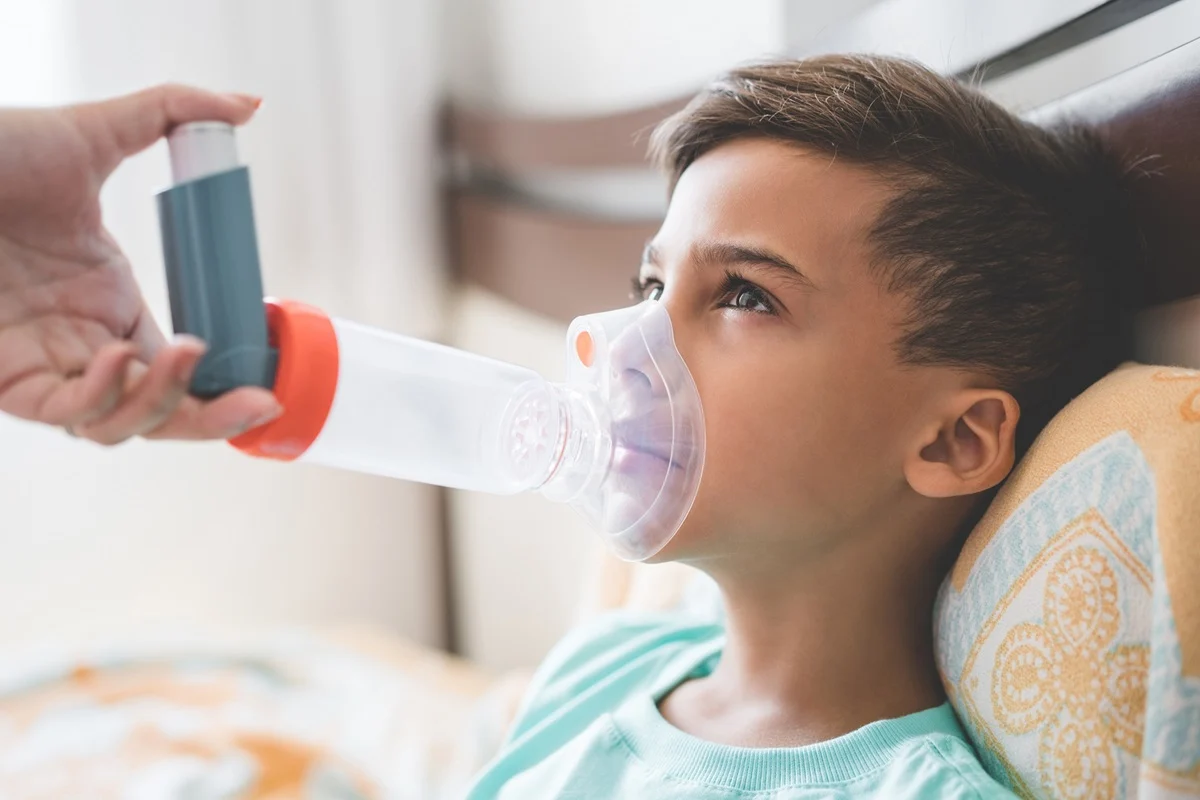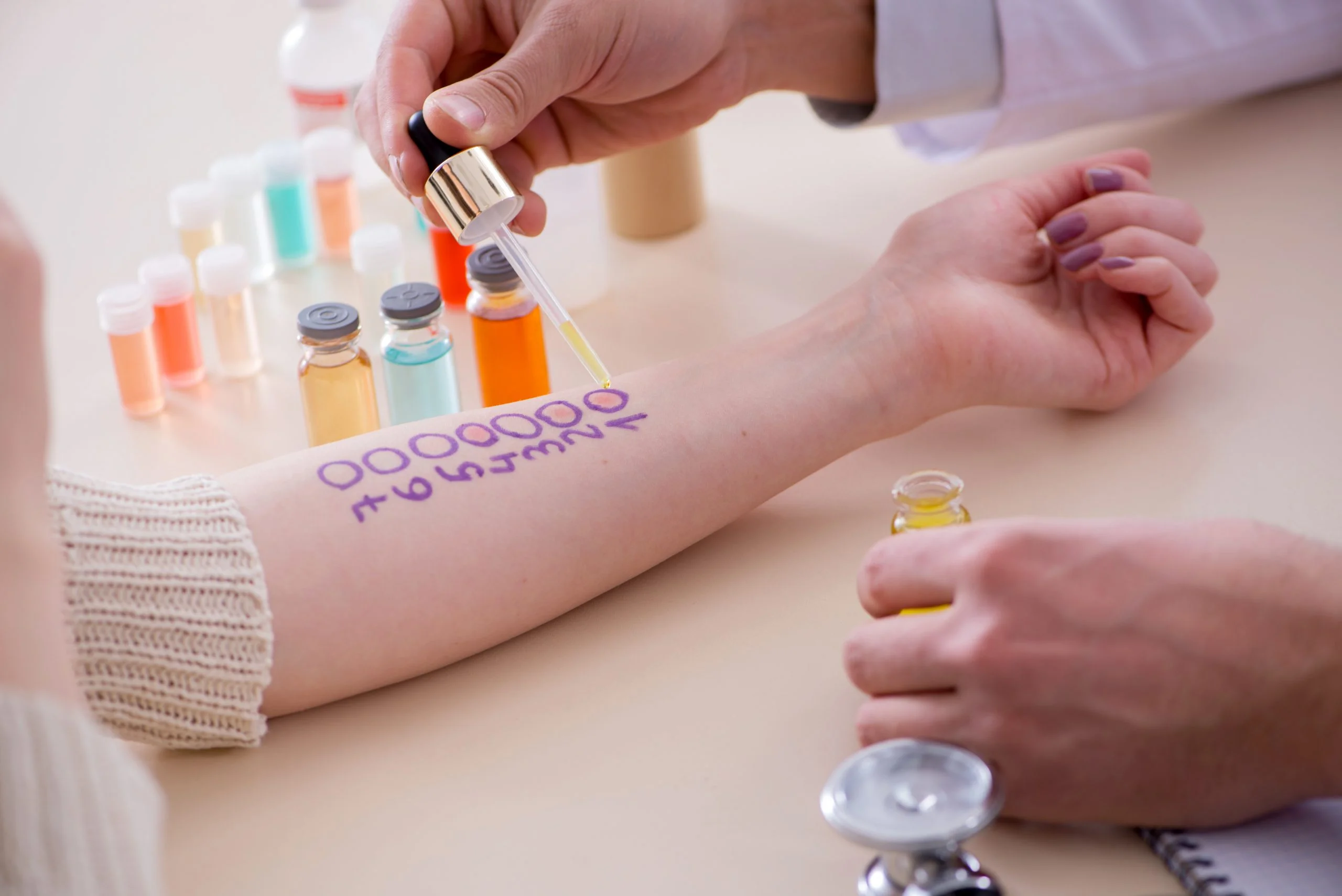Allergic Conditions
Allergic conditions occur when the immune system mistakenly overreacts to harmless substances in the environment, called allergens. These allergens trigger a cascade of immune responses, leading to symptoms that affect different parts of the body, such as the respiratory system, skin, or digestive tract. Some common allergic conditions include allergic rhinitis, eczema, and asthma, which are often interconnected and may occur together in a condition known as the atopic triad.
1. Allergic Rhinitis (Hay Fever)
What it is: Allergic rhinitis occurs when the immune system reacts to airborne allergens, such as pollen, mold, dust mites, and pet dander. It is sometimes called hay fever because it often occurs during certain seasons (e.g., spring and fall) when pollen levels are high.
Symptoms:
Sneezing
Runny or stuffy nose (nasal congestion)
Itchy, watery eyes
Itchy throat
Coughing
Common Triggers:
Pollen (from trees, grasses, and weeds)
Dust mites
Mold spores
Pet dander (e.g., from cats and dogs)
Treatment:
Antihistamines (oral or nasal sprays): Block the histamine response, which causes allergy symptoms.
Corticosteroid nasal sprays: Reduce inflammation in the nasal passages.
Decongestants: Help reduce nasal congestion (available as oral medications or nasal sprays).
Allergen Avoidance: Minimizing exposure to known allergens (e.g., staying indoors on high-pollen days, using air purifiers).
Immunotherapy: Allergy shots or sublingual tablets may help desensitize the immune system to specific allergens over time.
2. Eczema (Atopic Dermatitis)
What it is: Eczema is a chronic inflammatory skin condition that makes the skin red, dry, itchy, and sometimes cracked. It is most common in children but can affect individuals of all ages. Eczema is often linked to other allergic conditions, including asthma and allergic rhinitis.
Symptoms:
Red, inflamed patches of skin (often on the face, elbows, knees, or hands)
Intense itching (which can worsen at night)
Dry, flaky, or scaly skin
Thickened skin with repeated scratching
Common Triggers:
Environmental allergens (e.g., pollen, dust mites, pet dander)
Irritants like soap, detergents, and harsh chemicals
Temperature changes (heat or cold)
Stress
Certain foods (for some people)
Treatment:
Topical corticosteroids: These reduce inflammation and relieve itching.
Moisturizers: Regular use of emollients or moisturizers to prevent skin from drying out.
Antihistamines: To manage itching, especially during flare-ups.
Avoidance of irritants: Identifying and avoiding triggers like certain fabrics, soaps, and foods.
Immunosuppressive medications: In severe cases, oral or topical medications like calcineurin inhibitors or biologics may be prescribed.
3. Asthma
What it is: Asthma is a chronic condition that causes inflammation and narrowing of the airways, making it difficult to breathe. It is closely linked to allergic conditions, and allergic asthma is triggered by allergens like dust mites, pet dander, or pollen.
Symptoms:
Wheezing (a high-pitched whistling sound when breathing)
Shortness of breath
Chest tightness
Frequent coughing (especially at night or early morning)
Common Triggers:
Allergens (e.g., pollen, dust mites, mold, pet dander)
Respiratory infections (e.g., colds)
Exercise (especially in cold, dry air)
Irritants like smoke, pollution, or strong odours
Treatment:
Inhalers: Medications delivered through inhalers, including:
Bronchodilators: Help open up the airways quickly.
Corticosteroids: Reduce inflammation in the airways.
Oral medications: In severe cases, oral steroids or leukotriene modifiers may be used.
Allergen avoidance: Reducing exposure to known asthma triggers can help manage the condition.
Immunotherapy: Allergy shots or sublingual tablets can help desensitize the immune system to allergens over time.
Why Allergy Testing May Be Needed
1. Identifying Specific Allergens: Allergy tests help pinpoint the specific substances that trigger allergic reactions. This is important for understanding what is causing symptoms, especially when multiple allergens are involved. Identifying the triggers allows individuals to avoid them and seek appropriate treatments.
2. Managing Multiple Allergies: People with multiple allergies (e.g., dust mites and pollen) may benefit from comprehensive allergy testing. This helps to ensure that treatments are targeted and effective, and that all allergens are considered in their management plan.
3. Guiding Treatment Decisions: Accurate knowledge of specific allergies can guide treatment choices. For example, immunotherapy (allergy shots) is most effective when it targets the specific allergens causing symptoms. Additionally, allergy testing can help doctors decide which medications (antihistamines, corticosteroids, etc.) are most appropriate for each individual.
4. Preventing Unnecessary Medications: If a person is unsure of their triggers, they may unnecessarily use medications or undergo treatments that are not effective. Allergy testing helps to avoid this and ensures the most appropriate and efficient course of action.
Allergy Testing Available at RelentCare ENT Centre, Thrissur Kolazhy
At RelentCare ENT Centre is a Allergy testing centre in Thrissur, kerala, a variety of allergy testing is available to diagnose the specific allergens responsible for symptoms. Some common tests include:
Skin Prick Test (SPT):
done under supervision of Dr Aiswarya Thambi, Dr Salison Salim or Dr Vidya Ramdas
A small amount of allergen is applied to the skin (usually the forearm or back), and the skin is gently pricked.
If a person is allergic to the substance, a raised, red bump (wheal) forms within 15–20 minutes.
This is a quick, cost-effective test and can identify a wide range of allergens.
Here we do customised 75 allergen panel to check for common 75 allergens
Blood Tests (RAST or ImmunoCAP):
These tests measure the level of IgE antibodies in the blood that are produced in response to allergens.
It can be used when skin tests aren’t suitable, such as for individuals with severe eczema or those taking certain medications that interfere with skin testing.
Patch Testing:
This is often used to identify contact allergens that cause eczema or skin reactions.
Small amounts of potential allergens are placed on patches that are then taped to the skin (usually on the back).
After 48 hours, the patches are removed, and the skin is evaluated for a reaction.
Specific IgE Blood Testing:
Measures the exact amount of specific IgE antibodies produced in response to certain allergens (e.g., pet dander, tree pollen, etc.).
Helpful when testing for a wide variety of allergens, including food allergens or indoor allergens like dust mites.
Conclusion
Allergic conditions like allergic rhinitis, eczema, and asthma are common but can be effectively managed with proper identification of triggers and appropriate treatment. At Relentcare ENT Centre in Thrissur Kolazhy, patients can undergo a variety of allergy tests to help identify the causes of their symptoms, which allows for more targeted treatment and better management of their condition. If you are experiencing symptoms of allergies, consulting an allergy specialist at this centre can provide valuable insights and relief.





Comments